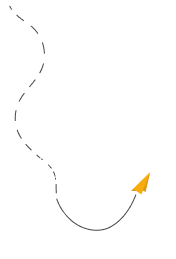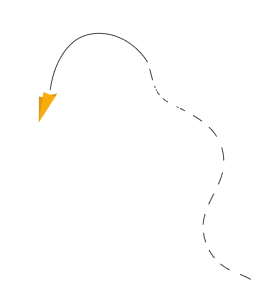Psychosocial Recovery Coaching vs. Traditional Therapy: Understanding the Differences

At a glance:

● Recovery Coaching focuses on building life skills and resilience for daily living.
● Traditional Therapy addresses emotional and psychological issues through introspection.
● ClearPath NDIS offers personalised psychosocial recovery coaching to support independence.
● Both services can complement each other to provide comprehensive mental health support.
When it comes to mental health support, the distinction between several forms of care and support services can sometimes become indistinguishable.
Two of these terms related to the National Disability Insurance Scheme (NDIS) are psychosocial recovery coaching and traditional therapy. Both of their objective is to improve the quality of life for people facing mental health challenges.
However, they are different and distinct when it comes to their methods, objectives, and outcomes. As one of the leading provider of NDIS services, ClearPath NDIS offers a variety of support. One of our offerings is psychosocial recovery coaching.
It is designed to help people navigate their recovery journey. This blog explores main differences between psychosocial recovery coaching and traditional therapy. And aims to provide a better understanding of how they fit into mental health support and recovery.
What is Psychosocial Recovery Coaching?
Psychosocial recovery coaching is an emerging service in the field of mental health, especially in the context of NDIS. It aims at helping people with psychosocial disabilities that arise from severe and chronic mental disorders such as schizophrenia, bipolar and major depression disorders.
A psychosocial recovery coach works with such individuals. They assist such individuals to develop their living abilities and skills, use strategies to cope with day-to-day demands, challenges, and work towards achieving their goals.
The objective is to encourage participants to take control of their lives. And this is done by providing practical support and guidance tailored to their unique needs.
ClearPath NDIS psychosocial recovery coaches work intensively with clients to understand their problems and help them build their capacity. This type of intervention is more hands on and focuses on learning functional skills.
What is Traditional Therapy?
Traditional therapy is also known as psychotherapy or counselling. As part of this therapy, trained therapists work with their clients to explore thoughts, feelings, and behaviours with the aim of delivering emotional support; addressing psychological issues; and promoting mental well-being. There are many forms of therapies including:
● Cognitive Behavioural Therapy (CBT): Focuses on changing negative thought patterns and behaviours.
● Psychodynamic Therapy: Explores unconscious thoughts and childhood experiences to understand present behaviour.
● Humanistic Therapy: Aims to foster personal growth and self-actualisation.
In therapy, the client typically focuses on introspection, investigating involuted issues and incidences that can be regarded as emotional. These sessions are focused on identifying and resolving conditions like anxiety, depression, trauma, or relationship issues.
Traditional therapies provide invaluable support for people managing mental health conditions. However these vary greatly from psychosocial recovery coaching in terms of their approach and focus.
Generally the focus of therapy is on emotional and psychological considerations. Recovery coaching, on the other hand, aim towards the development of particular skills in order to function within the community.
Key Differences Between Psychosocial Recovery Coaching and Traditional Therapy
Psychosocial recovery coaching and traditional therapy have several key differences in terms of their focus, objectives, methodologies. practitioner’s role, duration of support, and their integration with NDIS.
1. Focus and Objectives
Psychosocial recovery coaching concentrates on assisting those with psychosocial impairments in mastering competencies, resilience and strength.
This type of coaching is action-oriented. It emphasises on enabling individuals to achieve personal goals, overcome barriers, and develop strategies for everyday functioning.
Here at ClearPath NDIS, recovery coaches aim to help participants not only get adequate support but also be able to sustain themselves and lead an enjoyable independent life.
Traditional therapies are more introspective and process-oriented as they mostly focus on understanding and healing emotional or psychological distress.
Such therapists help their clients explore their inner worlds, identify maladaptive thought patterns, and work through past unresolved issues.
This methods focus is mostly long-term emotional healing and psychological well-being of the individuals.
2. Methodology
Methodology adopted by psychosocial recovery coaching is practical and solution-focused. Coaches work with their clients to create personal plans to overcome specific challenges in their lives.
They help their clients in building confidence and in becoming independent by offering hands-on support for managing day-to-day activities, improving social interactions, or navigating the NDIS system.
Traditional Therapy: Therapy often employs various psychological frameworks and methods, such as cognitive-behavioural techniques, psychodynamic analysis, or talk therapy.
Sessions tend to focus on mental and emotional exploration, helping individuals understand the root causes of their psychological distress.
3. Role of the Professionals
Psychosocial recovery coaches act as partners, mentors, and advocates for their clients. They mostly work in a collaborative and peer-based relationship.
They guide their clients toward managing their recovery. They can also assist the clients in accessing multiple services and teach them life-building coping strategies to increase their social networks.
Recovery coaches at ClearPath NDIS work in order to empower participants through self-management, thereby laying a path for the continuity and sustainability of recovery.
Traditional therapists mostly serve as expert guides that guide clients through therapeutic processes that are based on established mental health principles.
They make it safe for the client to share their emotions and experiences, offer insights, and intervene in various ways to aid healing and emotional growth.
4. Duration of Support
Psychosocial recovery coaching usually falls into the medium- to long-term service, as clients work with coaches over time to realise their goals and develop skills that are needed for them to live independently.
The relationship between a client and a recovery coach may last for several years, depending on the individual's needs and the complexity of their needs.
Traditional therapy can be either short- or long-term, depending on what is going on with an individual's mental health and what goals have been set.
Some may go into therapy for only a few months to work through certain issues; others will be in ongoing therapy after many years, especially if they happen to have chronic mental health conditions.
5. NDIS Integration
NDIS integration is one of the major differences between psychosocial recovery coaching and tradition therapy. Recovery coaching is often provided under the auspices of the NDIS. Coaches work within the NDIS framework to help clients manage their plans and connect with the right services.
As a matter of fact, recovery coaches at ClearPath NDIS play a crucial part in directing participants through complexities associated with the NDIS so that they have access to required funds and support for their recovery.
Though very valuable, traditional therapy in general is not always covered under the NDIS, unless it is specifically included in the participants plan. This is because the practice of therapy, in general, is considered a health service and not a service under disability support.
Therefore this may fall under different funding streams.
When Should You Choose Psychosocial Recovery Coaching?
Psychosocial recovery coaching is an ideal service for individuals living with a psychosocial disability desiring practical and goal-oriented support.
Whether it is you or someone you take care of wanting to build life skills, manage daily tasks, or even handle the processes of the NDIS, this is where recovery coaching comes in handy.
ClearPath NDIS focuses on providing tailored support to build resilience and live as independently as possible.
Recovery coaching is beneficial for individuals who:
● Need support to access appropriate NDIS services.
● Want to focus on building practical skills for everyday life.
● Require continued support to maintain stability and personal growth.
● Are inclined towards collaborative and strengths-based approach to recovery.
When Should You Choose Traditional Therapy?
Traditional therapy may be suited for people who are trying to resolve deep-seated psychological issues or emotional turmoil. Therapy can provide appropriate emotional support and therapeutic interventions that would help in healing mental health conditions like anxiety, trauma and relationship concerns.
Consider therapy if you are:
● Looking for a safe space in which to discuss and work through personal challenges.
● Aiming to figure out deeper causes of your emotional and psychological challenges.
● In need of a structured environment to process trauma, grief, or other emotional issues.
● Interested to develop healthier coping mechanisms for managing your mental health.
● Interested in finding a safe space to discuss and work through personal challenges.
The Perfect Combination: Utilising Both Services
It should also be emphasised that psychosocial recovery coaching and traditional therapy are in no way mutually exclusive. Individuals who avail themselves of both services in tandem can have better benefits.
For example, a person living with a psychosocial disability might engage a recovery coach to work on such life skills as cooking and budgeting and linking up with supportive services.
Simultaneously, he might go to therapy to work through emotional or psychological issues.
At ClearPath NDIS, we know that everybody's journey towards recovery is unique, which is why we offer flexible, individualised services that can be combined with other forms of support to help participants achieve their best possible outcome.
Choosing the Right Support for Your Needs
Which of these two works for you ultimately depends on what you want to get from the interaction, what your needs are, and what the situation is.
Though both provide valuable support, there are serious differences in approach, objectives, and methods between psychosocial recovery coaching and traditional therapy.
If you are looking for practical, hands-on support that will enable you to manage daily life and work toward achieving your goals, then psychosocial recovery coaching through ClearPath NDIS may be the way to go.
If you're after emotional healing and deeper psychological work, then traditional therapy may be more suitable.
Why Choose Clear Path for Your Psychosocial Recovery Coaching?
At Clear Path, we are committed to providing personalised, customer-led support. Apart from being trained in mental health our psychosocial recovery coaches are passionate about helping you realising personal goals.
Some of our coaches have lived experience. The helps them to offer a level of understanding and empathy that is crucial in the recovery process.
We are not just a service provider. We are your dedicated partners in your journey to recovery. The Clear Path team works with you to make you feel empowered, supported and confident in your efforts to lead a full and happening life.
Get in touch today to discover how Clear Path NDIS can be a part of your or loved one’s journey to recovery.
Discover More Insights Here
Explore our collection of informative articles.





